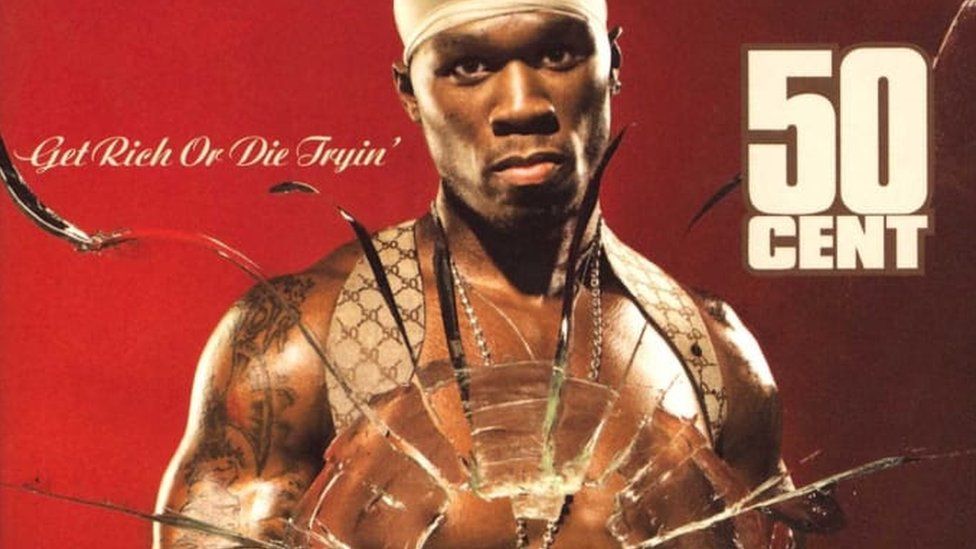
Thinking about media examples of deviant behaviors, the hip-hop subculture is one of the most obvious solutions. In a short period, rappers were able to create their masterpieces and motivate millions of people through their songs and stories. Early 50 Cent posters were usually characterized by aggressiveness and violence because of the image chosen by Curtis James Jackson III. His album “Get Rich or Die Tryin’” was everywhere, and his photo behind the broken glass (as shown in Figure 1) was recognizable (Virk, 2018). At first, society might negatively react to this example because it is associated with the disorder and the desire to break something (e.g., law, people, or even human souls) to deliver the message. However, there is a chance to change this opinion and treat this picture as I do. My feelings about the offered media example are more compassionate. I see a black person with sad and even angry eyes (maybe because of misunderstandings, prejudice, and discrimination). He has to break the glass to be recognized and heard by society, relying on his strengths and abilities.
In most cases, people find it appropriate to consider social deviance as the intention to cross the line for personal benefits. In this media example, 50 Cent is represented through the broken glass, which is not socially appropriate and is usually provoked by some fight or other criminal intentions. Conflict theorists introduce crime as a rational act that may be explained by the inevitability of certain conditions (Clinard & Meier, 2016). This theory underlines the role of the government and law in protecting human property and rights (Clinard & Meier, 2016). The glass represents the line that should be broken for certain groups of people to gain equality and understanding. In general, this example proves that hip-hop music and subculture can be dangerous for those who poorly interpret it. As a result, aggression, anger, and conflict are the first words that come to people’s minds when they think about hip-hop. Instead, it is high time to look at the situation from a different angle and discover a new characteristic of social deviance in modern society.
References
Clinard, M. B., & Meier, R. F. (2016). Sociology of deviant behavior (15th ed.). Cengage Learning.
Virk, K. (2018). 50 Cent’s story: From shootings to million-dollar deals.BBC.